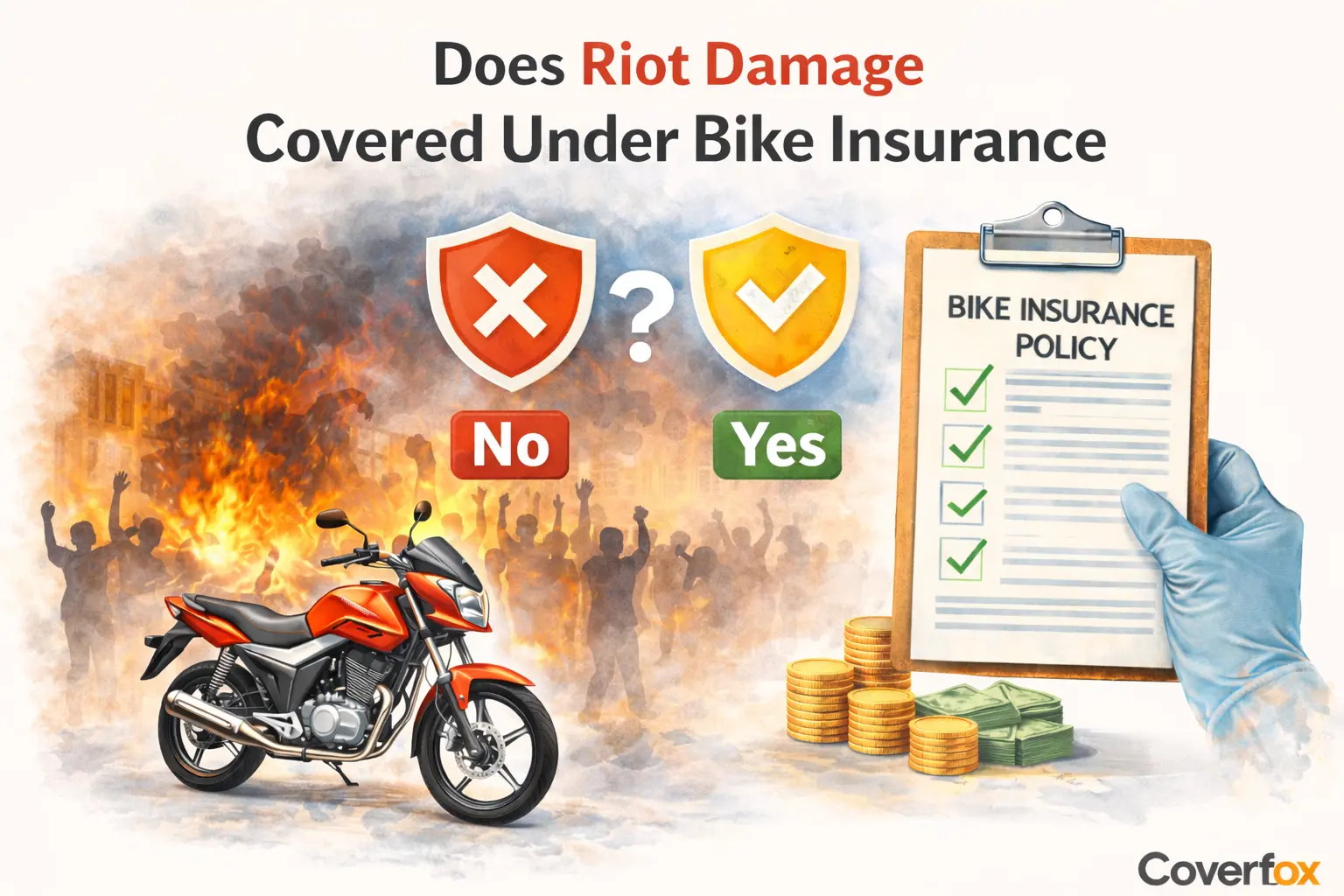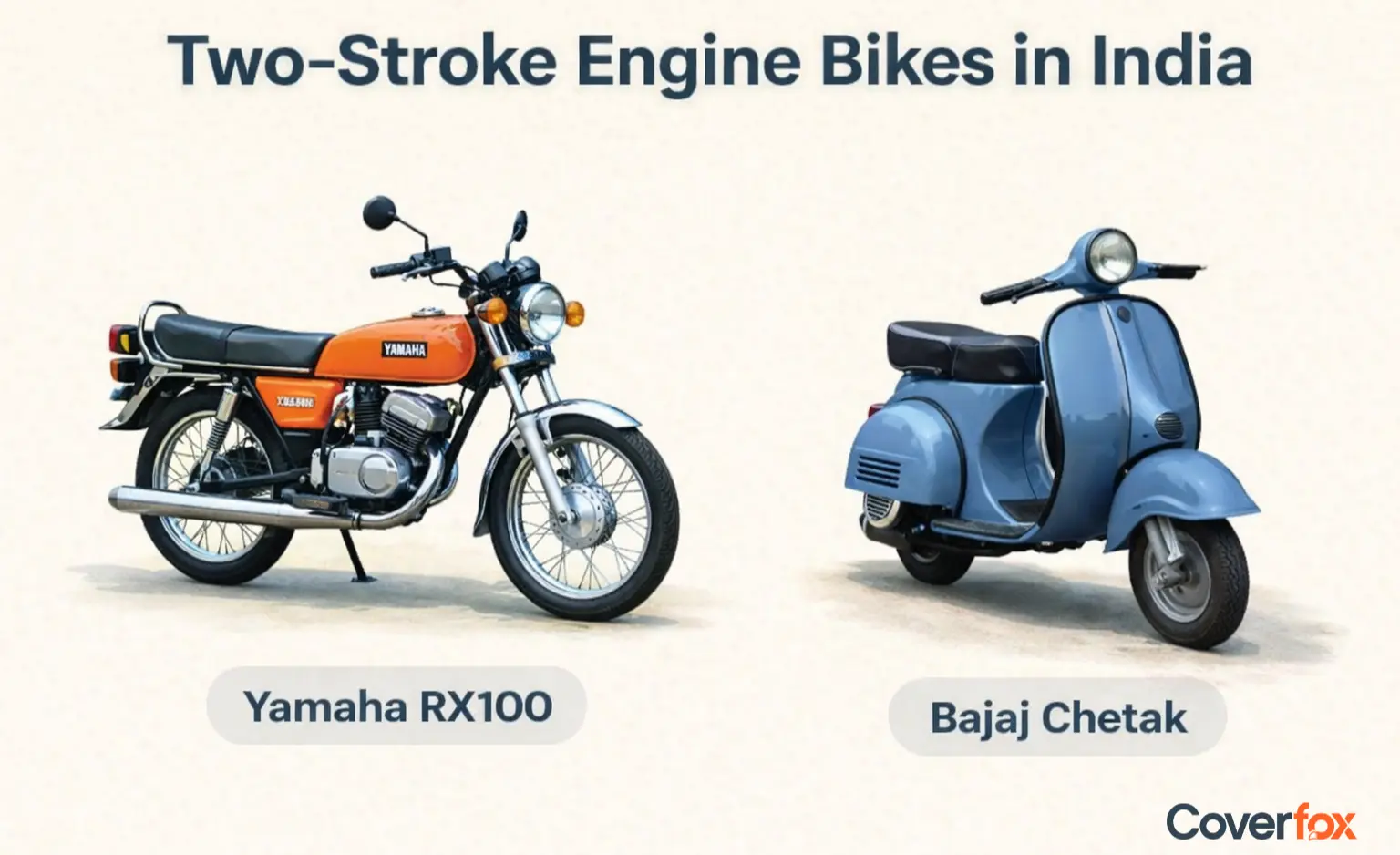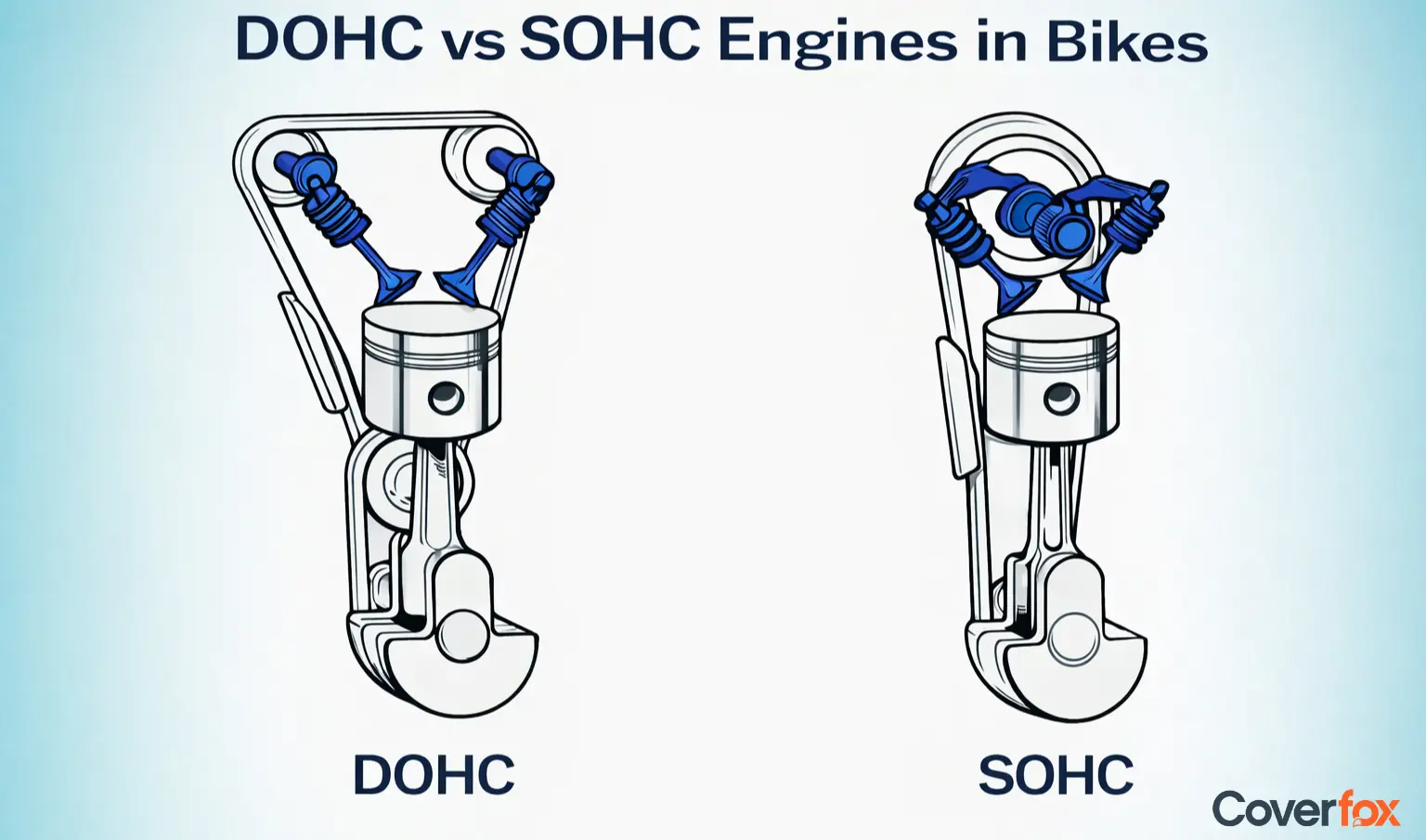Confused about what type of two-wheeler you want to buy? A question that confuses most first-time buyers who do not have a specific preference for motorcycles or scooters.

While each of the two has its own advantages and disadvantages, the decision is still hard to make; you would need to weigh your needs and preferences to come to a decision. If we talk about the post-independence period, scooters have always had the edge over motorcycles, but that drastically changed as technology, design and preferences updated over the years. So, let's get into the details about the differences between a scooter and a motorcycle, understanding the pros and cons of each.
What is a Scooter?
A scooter is a type of two-wheeler built for comfort, convenience, and ease of use. This vehicle is made for city commuting and not long-distance travel. Scooters typically feature a step-through frame, automatic transmission, and smaller wheels, making them easy to ride and highly practical in city traffic.
General Characteristics of Scooters
- Step-through frame design
- Automatic CVT transmission
- Small engine size (typically 50cc–150cc)
- Lightweight and easy to handle
- Under-seat storage space
- Suited for short to medium-distance travel
What is a Motorcycle?
Motorcycles are more complex than two-wheelers. They are designed to give out performance, control and have multi-purpose use (Can be used for city commuting as well as long rides). They generally have a bigger engine, a manual transmission and little storage space. Motorcycles are often referred to as bikes or motorbikes as well.
General Characteristics of Motorcycles or Bikes
- High saddle and fuel tank placement
- Manual transmission with clutch
- Engine sizes ranging from 100cc to 1000cc+
- Designed for speed and long-distance travel
- Greater structural stability and suspension
- Sports, commuter, touring, and adventure variants
Key Differences Between Scooters and Motorcycles
Let us understand in depth the key differences between scooters and motorcycles:
| Factor | Scooter | Motorcycle |
|---|---|---|
| Design and Structure | Step-through frame, flat footboard, smaller wheels | Higher seat, visible fuel tank, larger wheels |
| Engine Performance | Low to moderate engine power | Broad power range, more powerful engines |
| Speed | Typically lower top speed | Higher speed capabilities |
| Fuel Efficiency | Generally, more fuel-efficient in city rides | May offer better mileage on highways |
| Maintenance & Servicing | Easier and cheaper to maintain | Higher servicing costs due to complex parts |
| Ease of Use | Ideal for beginners, automatic transmission | Requires gear shifting, more skill needed |
| Safety Features | Basic safety, some models with CBS | ABS, disc brakes, and better suspension in most variants |
| Best Use Cases | Daily city commutes, errands | Long-distance travel, touring, adventure riding |
Pros and Cons of a Scooter
Scooters are easy to learn and convenient, but also have their own drawbacks. Here is a more details pros and cons of a scooter:
| Pros | Cons |
|---|---|
| Lightweight and easy to handle | Lower top speed and performance |
| Automatic transmission – no gear shifting | Less suitable for long-distance travel |
| Good fuel efficiency in urban traffic | Smaller wheels can struggle on rough roads |
| Built-in storage space | Limited power and load-carrying capacity |
Pros and Cons of a Motorcycle
Motorcycles deliver speed, power, and versatility, but just like scooters, they have their own drawbacks. Here is a more detailed pros and cons of a motorcycle:
| Pros | Cons |
|---|---|
| Higher speed and engine performance | Requires manual gear shifting and more skill |
| Versatile for city and long-distance travel | Generally costlier to maintain |
| Better suspension and road grip | Heavier and harder to manoeuvre in traffic |
| Available in multiple styles (sports, cruiser) | Typically lacks built-in storage |
Cost Considerations of Bike and Scooter
Cost plays a key role in choosing between the two. Here’s how they compare:
| Factor | Scooter | Motorcycle |
|---|---|---|
| Purchase Price | Lower upfront cost | Varies widely based on engine and type |
| Insurance Premiums | Generally lower due to a smaller engine | Higher for powerful bikes |
| Resale Value | Moderate depreciation | Varies – sports bikes hold better value |
Key Takeaways
If your needs require short-distance commutes, a low budget, but cost-efficiency, you should opt for a scooter. If your needs require city commuting along with occasional rides, high performance and control over the two-wheeler, you should opt for motorcycles. Motorcycles or scooters, whichever you choose, ensure you pair them up with bike insurance, as it is mandatory by law to have third-party two wheeler insurance policy for scooters and motorcycles to be able to ride on public roads of India, as per the Motor Vehicle Act 1988.
Also Read:
Frequnetly Asked Questions
Which is more fuel-efficient: a scooter or a motorcycle?
For city commutes, a scooter is more fuel efficient, but for highway and long-distance riding, motorcycles triumph over scooters.
Is bike insurance mandatory for both scooters and motorcycles?
Yes, third party two wheeler insurance is mandatory for both scooters and motorcycles as per the Motor Vehicle Act 1988.
Can beginners easily learn to ride a motorcycle?
For beginners, scooters are a better learning option as they are easier than a motorcycle.
What are the maintenance costs associated with scooters vs. motorcycles?
Motorcycles generally have higher maintenance costs than scooters.
Are electric scooters a good alternative to traditional motorcycles?
Electric scooters work as a sustainable option, and are beneficial for the environment as it has 0 emissions. But, a traditional motorcycle will have a different use than an electric scooter, as electric scooters will have limited speed and range, while motorcycles solve that issue.
Which is faster, a motorcycle or a scooter?
A motorcycle is faster than a scooter.
Which is safer, a motorcycle or a scooter?
A motorcycle has more safety features than a scooter.
 in Bikes.webp)
 in Bikes.webp)


.webp)
